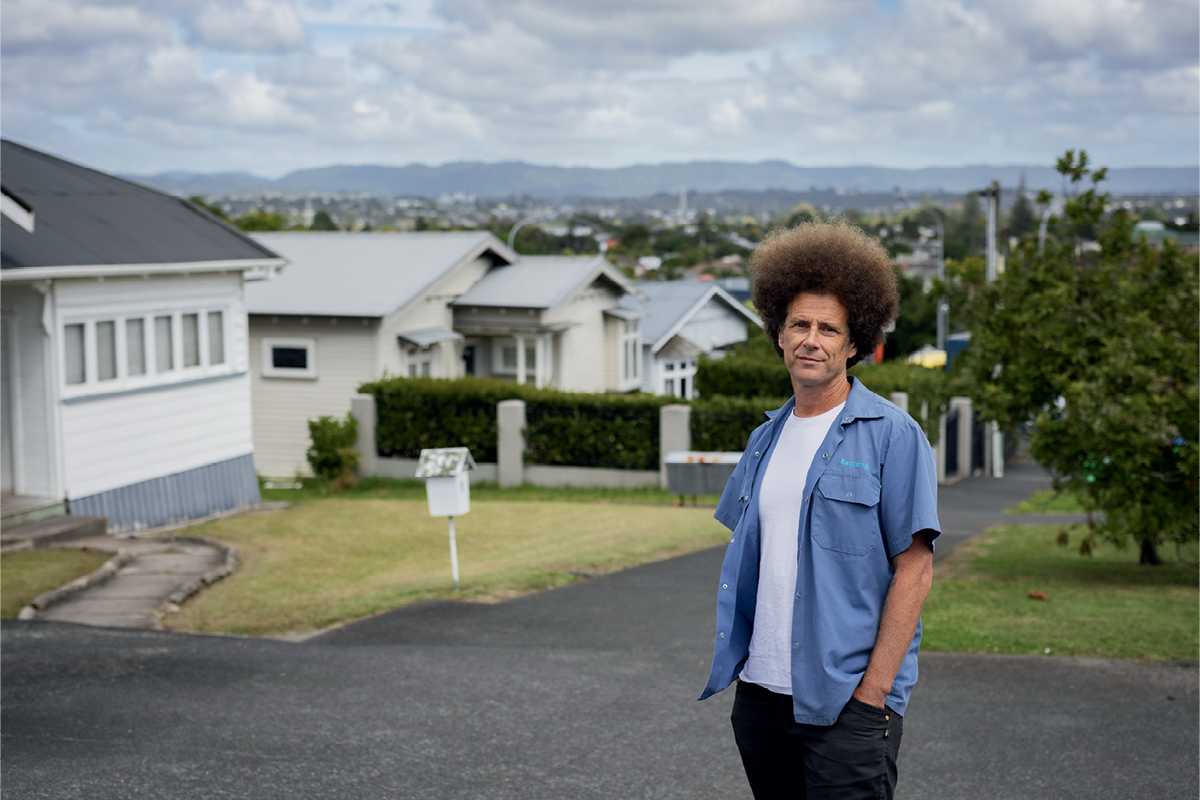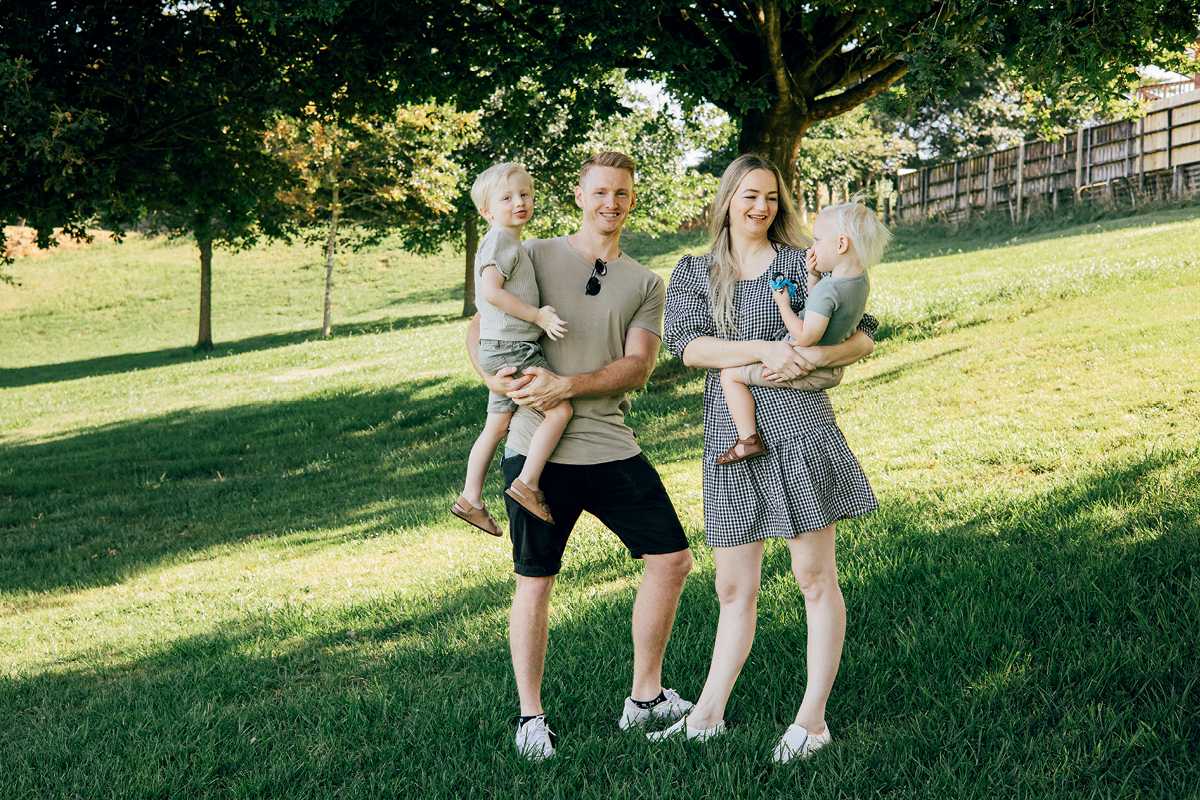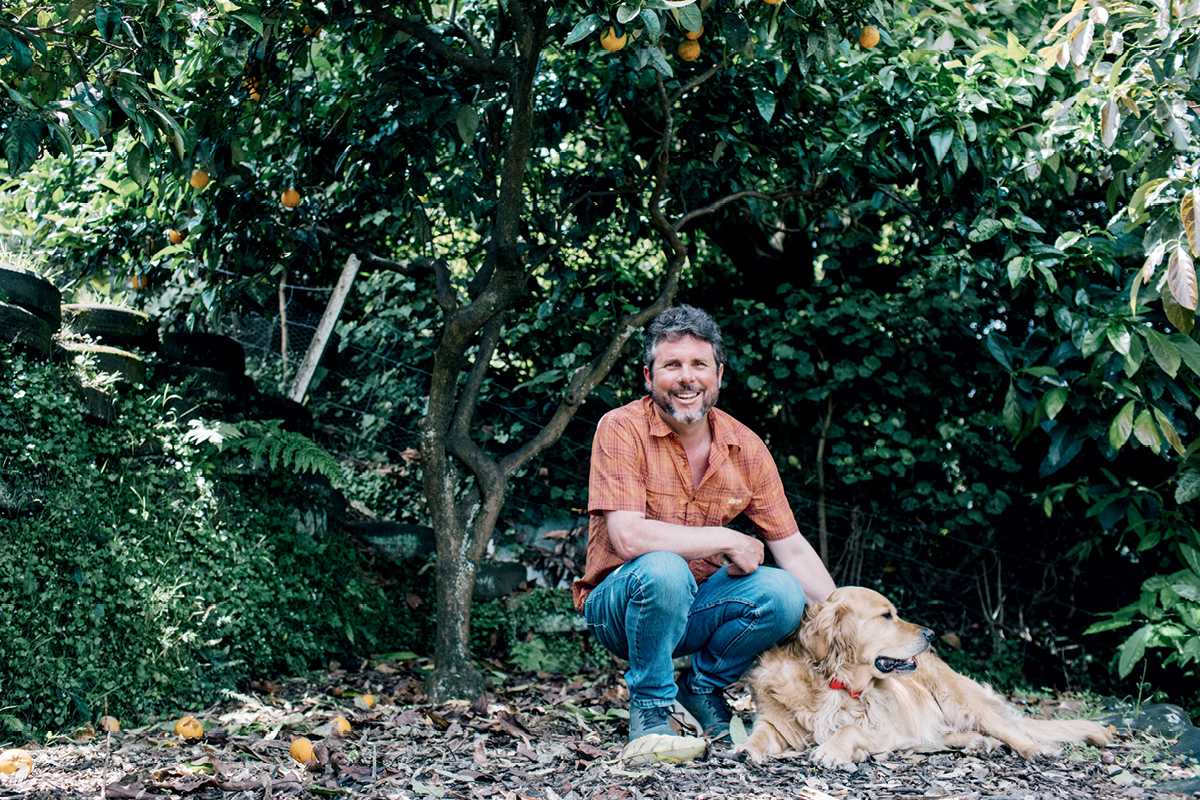
Solid Gold Strategies
Former personal trainer Michael Burge has achieved significant success by doing his research and being savvy with his investments, as Joanna Jefferies explains. Photography by Rachel Dobbs
1 June 2020





MICHAEL BURGE’S BEST BUY
“I remember lying in bed thinking, ‘I need to buy a massive piece of sh*t maybe a meth house’,” says Michael Burge with a laugh. He hit the jackpot with his fourth property, an extremely badly vandalised property that he hadn’t even seen in person when he put in his offer. Burge did look at the house before he settled, for $176,100. He spent a total of eight weeks and $60,000 renovating the property, after which it was revalued at $400,000 and rented out for $500 a week. It has a gross yield of 11.01% and a net yield of 9.39%, generating a passive income of around $225 per week or over $11,700 a year.
How committed are you to succeeding in property investment? Probably not as committed as Michael Burge. Four years ago, Burge was a selfemployed personal trainer in the fitness industry, which meant his income was patchy. Some months were great, but others were uninspiring. He’d always hoped to be able to build passive income through his business, but he realised that wasn’t happening.
“I thought, ‘I need to own something’,” says 31-year-old Burge.
“I had some money in KiwiSaver, which kind of forces you to put it into property, and I had some friends who had been successful in property. I vividly remember lying down on my bed, telling myself: ‘I know nothing. Whatever I think I know, I’m going to push to one side. I’m going to go out there and learn.’ I wanted to know how to make the most out of the money. I wanted to know: ‘Why do some people have one house and other people have 50?’”
He spent two years googling and watching YouTube, researching the world’s most successful property investors and figuring out what their strategies had in common. Burge then tried to translate what he’d learnt into the New Zealand market. The common denominator? All the investors bought for cashflow, added equity and then pulled out the newly-created equity to allow them to keep buying.
The new name for it is BRRRR: buy, renovate, rent, refinance, repeat. It’s a fresh acronym for the long-standing property investment strategy of “buy a do-up to rent, add value, hold for the long term”. This way of investing works in every type of market, says Burge.
“I don’t get why more people don’t do BRRRR,” he says. “You don’t have to reinvent the wheel. You can just copy what other successful people have done. It’s a strategy that works in any market.”
To The Regions
Burge looked at the numbers in Auckland, but they didn’t add up. He looked further afield:
“Rotorua was going to be the place that worked. I could buy in the low $200,000s and the rents were decent. For the numbers to work, I have to buy in rough areas.”
So Burge decided to leave Auckland and move to Rotorua. He found a job in Tauranga and his first investment property; he put down a 20% deposit using some of his KiwiSaver money on a $195,000 house and moved in. It took him six months to renovate it, after which it was – like all his properties – comfortably cashflow positive.
Using cash again, this time requiring a 30% deposit, Burge purchased a second property. Then he used his equity to buy a third Rotorua property, in Fordlands, for $180,000. It took him four weeks and $30,000 to renovate it, and it was then revalued at $290,000. His fourth property was even better – his best buy to date (see sidebar).
At four properties, Burge was very close to achieving enough cashflow to quit his job. He decided that with the equity he’d created across his portfolio, he would try to buy three properties simultaneously, but the banks were less enthusiastic than he was.
“I knew I wouldn’t be able to buy for a year or so when I did this, and I thought there might be a recession, since there was one 10 years ago and they seem to come along about every 10 years. I wanted to buy three properties at once and go from four to seven.”
The plan to buy three didn’t quite work, but he found a non-bank lender to finance his fifth purchase – and by renovating it, he was able to get it revalued and refinanced to one of the big banks. He now has two properties in Fordlands and the other three are in Koutu, Western Heights and Westbrook. With five rentals, and around $50,000 in annual passive income, Burge stopped his personal trainer job. It had taken him just 18 months from the time of his first purchase.
Since his early success has been publicised, Burge has been flooded with feedback. Some of it has been negative. Plenty of it has been positive. And every day there have been messages from people wanting Burge to recreate his strategy on their behalf. His new business, Real Estate Consulting NZ Ltd, helps clients find good deals – and he’s already got more work than he can handle. What’s tougher to find are the right properties.
‘I didn’t get frustrated and complain about how expensive Auckland is – I moved to where my strategy would work. You don’t need to get frustrated. You need to go and figure sh*t out’
Prices in Rotorua have increased to the point where Burge thinks it’s going to be tough to get the yields to stack up. His third property is a good example of how quickly values have risen. It was valued after its renovation at $290,000, was revalued at the end of 2019 for $350,000, and another Fordlands property sold for $400,000 earlier this year. Although the capital gains have been a bonus, it’s still the cashflow that makes Burge the happiest. All his tenants’ rent comes from Work and Income NZ, so it’s effectively underwritten by the Government. Even if property values drop significantly this year due to the lockdowns, he’s not concerned.
“People love to tell me that I’m going to be f***ed if the prices drop, but I’d love it because I could buy back in lower. If the market did drop heaps, it would be great for first home buyers and investors. But realistically, I bought houses for $260,000 that are now valued at $330,000 – do people think values are going to drop more than 30%? On other properties they’d have to drop by 45% or 50% to go below what I paid for them.”
Future Predictions
Burge feels that serious drops in value are unlikely unless the coronavirus crisis becomes drawn out over many more months. His reasoning? The illiquidity of the market protects it from the volatility of, say, the share market, and the underlying housing shortage alongside the dropped LVRs and sub-3% borrowing are making buying easy and attractive. Burge certainly won’t be worrying about trying to time the market.
“The saying is that you buy and wait, not wait to buy. I hear that people are waiting for prices to go down and I think, ‘At what percentage decrease are you going to go back in? What’s your number? If you’re thinking 10%, and it does drop by that much, will you buy then or will you worry that it’s going to drop further? And if it goes up, at what percentage increase will you realise you were wrong?”
His plan is to use income from his new business to support his passive income, along with perhaps some trading, then build up enough cashflow and equity to buy more. Eleven is Burge’s favourite number and his forecasting shows that once he reaches 11 rentals using his system, he’ll have a passive income of more than $100,000 a year.
“At this point it has only cost me $50,000 in committed capital to create $50,000 a year in passive income – it’s insane. It’s a 100% return on investment, even when I had to put in a 30% deposit on almost all my properties – and that’s not including net worth increase – I’m now close to being a millionaire. I’ve posted on Facebook about my success and some people don’t believe it works. I get a lot of hate; a lot of p***ed-off people on forums. People don’t like that I’ve done this so quickly, but they forget that I spent years learning.”
Burge is confident in his strategy, his decision-making and his future success, because he believes in his strategy. It doesn’t rely on negative gearing, or a rising market, or luck. It’s been numbers, hard work and commitment:
“I didn’t get frustrated and complain about how expensive Auckland is – I moved to where my strategy would work. You don’t need to get frustrated. You need to go and figure sh*t out.”



